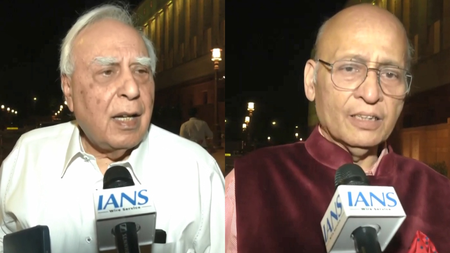New -Delhi, April 4 (IANS). The WAQF Amendment Bill was set in the Rajya Sabha on Thursday, to which leaders from different parties responded. Rajya Sabha Members Kapil Sibal and Abhishek Manu Singhvi raised many questions about this bill. While Sibal raised serious questions about the purpose of this bill and its impact, Singhvi calls it unconstitutional. Kapil Sibal, who spoke to the Ians news agency, said the government was having trouble understanding the difference between WAQF and the trust. He made it clear that people in Western countries donate their property under the trust, which is used for charity and can also be sold. But this is not the case in WAQF. When someone looks at his property, he is committed to God and it is not possible to sell or change it. Waqf is a permanent thing that cannot be changed or sold in any way. Sibal accused the government of taking Muslims in the wrong direction. He said the government says the opposition is misleading Muslims, but is it deceived? Tell me, how do you benefit Muslims? If the government talks about “one nation, one law”, why is this law implemented only on Muslims? Why not on other institutions? The Rajya Sabha MP said there are many governmental countries that have occupied people, but the government does not record. He said as an example: “If it is said tomorrow that Jama Masjid is no longer a waqf, what will happen?” He also raised the question that if someone has his own property, why not have the right to use it on his own will? Abhishek Manu Singhvi, MP of Rajya Sabha, also responded sharply to the bill and mentioned it unconstitutional. He said that this bill is contrary to Article 26 of the Constitution, as it has reduced the freedom from autonomy to religious communities in the operation of their institutions. Singhvi claims that the government has now enlarged the government’s control system, which will eliminate the autonomy of religious institutions. He said that if the government had insisted this bill, it could be disputed in court and the court could call it unconstitutional. -Ians PSK/Ekd Share this Story Tags
The government does not know the difference between Waqf and trust: Kapil Sibal
